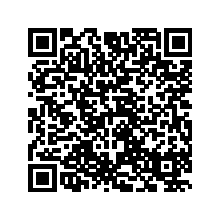Discovery at Carlson·16 Wisdom of the Crowd? It’s Complicated

Wisdom of the Crowd? It’s Complicated
While the global COVID-19 pandemic has greatly limited our ability to gather, physically, in crowds, nothing has stopped people from gathering in virtual spaces of all kinds. From social media to crowdfunding new ideas to crowdsourcing information, the wisdom shared by the many is still as popular as ever.
Researchers in the Carlson School’s Information & Decision Sciences department are looking into aspects of these crowds: where they form, how they work, and what impact they have on our lives. Recent, newly-published studies have uncovered information that companies and people should heed moving forward.
Facebook “Reactions” Lead to More Engagement
Believe it or not, the ability to like, love, care, laugh, say wow, be sad or angry on Facebook posts has been around since 2016. These “Reactions” to user-generated posts on Facebook business pages, according to Carlson School researchers in an article published in ACM Transactions on Computer-Human Interaction, have led to more engagement overall, including more Likes and Comments, than before the “Reactions” feature was introduced. The increased engagement did not affect all posts equally; instead it was “rich getting richer” with posts that received no engagement continuing to go unnoticed. The researchers—Assistant Professor Mochen Yang, Associate Professor Yuqing Ren, and Professor Gediminas Adomavicius—advice for organizations: "the introduction of new design features may have sophisticated, unintended, consequences on user behaviors." Take note, social media managers and platform designers!
Mobile App Use Grows with Crowdsourcing Features
How many apps are on your phone? It’s likely “too many” for a lot of us, which means we’re not using apps consistently. App developers, of course, want to change that. According to Carlson School research, introducing crowdsourcing features can help. In a forthcoming Management Science article, researchers Zhuojun Gu (a former Carlson School PhD student now at the University of Texas Arlington), Carlson School Professor Ravi Bapna, Associate Professor Jason Chan, and Professor Alok Gupta tested two features: the ability to submit content and the ability to access crowdsourced content. Through a randomized control trial, they found “that content submission significantly increases user engagement (+11%) and retention (+14%).” However, accessing crowdsourced content only had a positive effect on retention (+13%). Surprisingly, offering these features together leads to lower engagement since one user’s submission is crowded out by others.
We Listen to Our Friends’ Online Reviews
If your friend posts a restaurant review on Yelp, you are three times more likely to post a review when you visit that same restaurant. Further, your review will be of a “higher quality, longer, and more novel” than what your friend wrote. That’s according to research from Carlson School Professor De Liu and colleagues published in Information Systems Research. The authors also found that these types of reviews have a stronger effect on less-experienced users and less-reviewed products/services. Why is this the case? Competitive altruism, which “holds that the pursuit of status can motivate altruistic contributions.” Next time you’re searching for a restaurant, just see where your friends have been and everyone wins!
Let the Crowd Vote!
Liu, joined by Liang Chen of West Texas A&M University and Pei Xu of Auburn University, also recently studied the effects of crowd voting on participation in crowdsourcing contests. The article was published in the Journal of Management Information Systems. When compared to the usual contest design for judging creative works -using experts to rate entries- the researchers found more people participate when contests offer the crowd a chance to vote. “Specifically, every 10 percent increase in the crowd-voting reliance can boost users’ odds of participation by about seven percent.” The researchers note that these two approaches -crowd voting and expert rating- are not mutually exclusive, and “having a mix of expert-rated and crowd-voted prizes may allow the sponsor to strike a balance between attracting elite contestants and having broader participation.”
More Funds for More Projects
A new model from Carlson School researcher Yicheng Song and colleagues would increase the number of projects funded on the popular crowdfunding website DonorsChoose.org. By maximizing weekly total funding, the model would have “raised 2.5% more donation, provided 9% more funding to more viable projects, funded 17% more projects, and provided 15% more utility to the donors than the current system.” Published in Management Science, the researchers say that by focusing on the weekly funding totals, donors are better served over time. This model is based on a structural econometric model of utility-maximizing donors who can derive both altruistic (from the welfare of others) and egoistic (from personal motivations) utilities from donating—a unique feature of philanthropic giving.
Gender Gaps in Equity Crowdfunding
Raising capital is challenging. That’s especially true for women. But, equity crowdfunding (which allows all individuals to purchase securities in private firms through online platforms) might be a promising avenue for women seeking capital. Research by Carlson School Assistant Professor Sofia Bapna and Associate Professor Martin Ganco of the University of Wisconsin-Madison published in Management Science finds that in equity crowdfunding, the founder’s gender makes little difference on investors’ interest in investing in a venture. Male investors were as likely to be interested in ventures founded by females as those founded by males. Female investors showed a slight preference for ventures founded by females but this was mainly driven by less-experienced investors. These findings suggest the gender gaps found in traditional equity financing may be ameliorated in the equity crowdfunding context.

群体智慧,大有文章
由于新冠疫情的全球蔓延,目前人们很难在线下聚会,但虚拟空间依然是自由的。在社交媒体、众筹、众包等各个虚拟领域,群体智慧的活跃度有增无减。
卡尔森学院Information & Decision Sciences专业的研究人员调查了这些群体,包括:网络群体形成的平台、网络群体的运作方式、对我们生活的影响等。研究结果在近期完成了发表,为企业和个人提供了一些值得参考的信息。
脸书的“反应”功能提高了用户参与度
你可能没有注意过,但早在2016年脸书已经推出表示赞、喜欢、关心、大笑、惊讶、悲伤、愤怒等的功能按钮了。卡尔森学院的研究者在ACM Transactions on Computer-Human Interaction发表论文,表示脸书的“反应”功能允许用户对页面信息进行点评,整体上提升了用户的参与度,包括点赞和评论数量。并且,所有博主受到的影响是平等的,而不是“富裕者愈加富裕”、无人问津者继续冷清。副教授Mochen Yang、副教授Yuqing Ren、教授Gediminas Adomavicius等研究者对组织机构提出建议:“引入新的设计功能可能给用户行为带来复杂的、意料之外的影响。”社交媒体管理者和平台设计者们,请注意了!
众包功能提升手机APP用户数
你手机上有多少APP?很多人的答案是“太多了!”换言之,APP的用量并不稳定。APP开发者们当然希望改变这一现状。根据卡尔森学院的研究,引入众包功能可以解决这个问题。在Management Science杂志即将发表的一篇论文中,研究者Zhuojun Gu(卡尔森学院博士毕业生,现就职于德克萨斯大学阿灵顿分校)、卡尔森学院教授Raavi Bapna、副教授Jason Chan、教授Alok Gupta测试了两个特性:提交内容、获取众包内容。通过随机控制测试,他们发现“内容提交特性显著提高了用户参与度(+11%)和用户留存(+14%)”。然而,获取众包内容特性仅提高了用户留存(+13%)。令人惊讶的是,同时推出这两个特性会导致用户参与度下降,因为用户提交的内容会被淹没在其他用户的内容中。
朋友的线上评论,影响我们的判断
如果你的朋友在Yelp上发表了餐馆测评,那么你造访该餐馆后发布测评的可能性会增加三倍。并且,你的测评“质量更高、内容更长、信息更新奇”。这是卡尔森学院教授De Liu及同事在Information System Research上发表的一项研究成果。研究者们还发现,经验较少的用户、测评数较少的产品和服务受到的影响更大。为什么?因为竞争性利他主义,因为“对地位的追求会驱使人们做出利他性贡献”。下次找餐厅时,看看你的朋友们去了哪里吧!这可是多赢。
让大众投票!
Liu以及西德州农工大学的Liang Chen、奥本大学的Pei Xu在Journal of Management Information System上发表论文,介绍大众投票对众包竞赛的影响。创业设计比赛一般使用专家打分,研究者们通过对比发现,大众打分会吸引更多竞赛者参赛。“具体来说,大众投票的占比增加10%,参赛人数提高7%。”研究者们还表示,大众投票和专家投票并不相斥,“大众投票和专家投票并举,能在吸引高水平参赛人员的同时提高大众参与度。”
更多资金,更多项目
卡尔森学院的研究者Yicheng Song和同事设计了一个新模型,用于提高知名众筹网站DonorsChoose.org的筹资项目数量。该模型提高了每周最高筹资总数,并因此“使总筹资数额提高2.5%,较高质量的项目的筹资数额增加9%,获得资金的项目数量增加17%,捐款者获得的效用提高15%”。研究结果发表在Management Science杂志。研究者表示,通过关注每周筹资总额,长期而言,平台将能为捐款者提供更好的服务。该模型是基于结构化的计量经济学模型设计的,旨在使利他和利己的捐献者都得到效用最大化——这也是慈善捐款的特征。
股权众筹中的性别差异
筹资很困难,尤其对于女性。但是,股权众筹(允许个人通过线上平台购买私企股权)可能是女性创业者的一条坦途。卡尔森学院副教授Sofia Bapna和威斯康辛大学麦迪逊分校副教授Martin Ganco在Management Science杂志上发表论文,他们发现在股权众筹中,企业创始人的性别对投资人有影响。男性投资人对女性创业者和男性创业者的投资兴趣是相同的,女性投资人则青睐女性创业者,但这种区别很细微,且仅限于经验较少的投资人。这些发现说明,传统股权投资中的性别问题,能够通过股权众筹得到一定程度的纠正。



